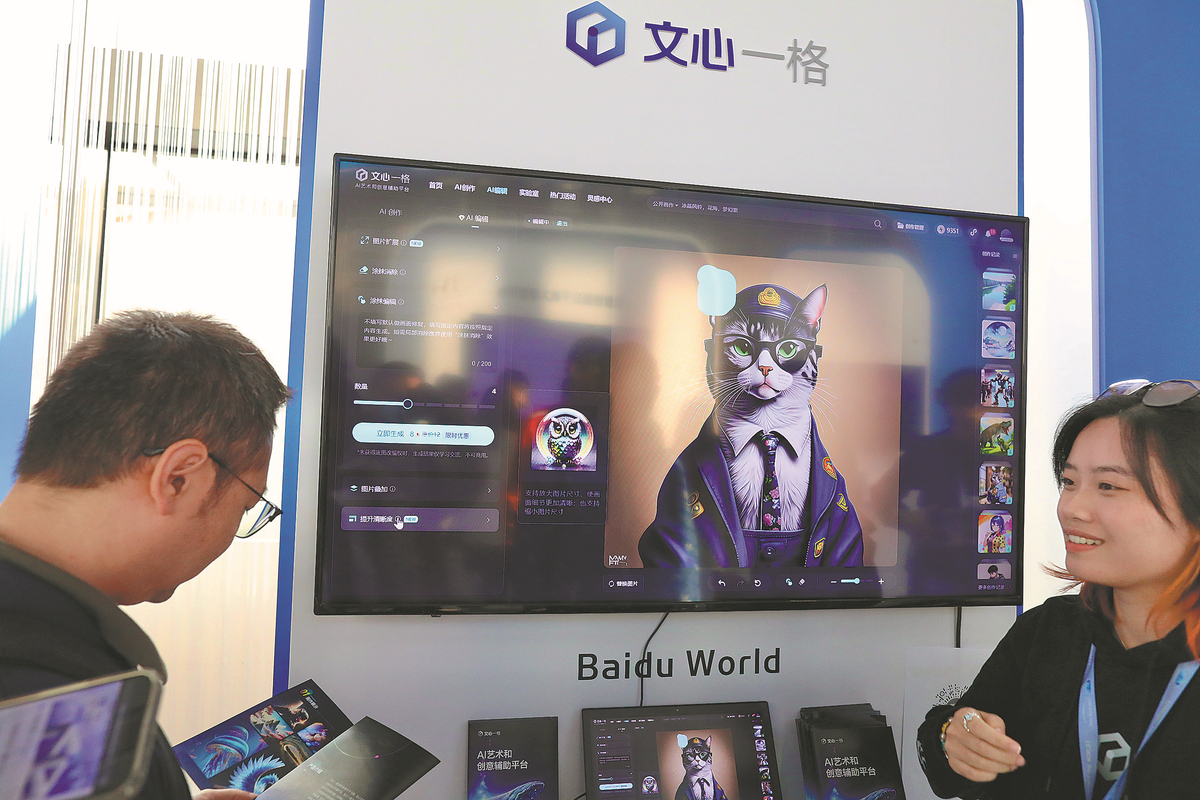AI revolution: Friendly makeover or hostile takeover?
A technology few had heard of until relatively recently suddenly became mainstream in the past year
By Yang Ran and Liu Jianqiao | China Daily | Updated: 2024-01-01 07:34

Serious consequences
Generative AI also presents many new risks that only become apparent when it is deployed in new settings, Zhang said. Labor displacement, the spread of false information, and so-called hallucinations are among the concerns raised in relation to generative AI.
AI hallucination occurs when an AI model generates false or illogical information that is not based on real data or events, but is presented as fact. Hallucinations can lead to significant consequences when people use AI for tasks with the potential for high-stakes consequences.
For example, a New York lawyer got into trouble in May for including fictitious legal research in a court filing after turning to ChatGPT for help in writing a legal brief.
In March, AI experts jointly signed a letter calling for a pause in developing systems more powerful than OpenAI's GPT-4, warning that AI laboratories are deploying "ever more powerful digital minds that no one — not even their creators — can understand, predict, or reliably control".
In addition to these risks, some experts have warned that AI's revolutionary impact on economic production threatens to further widen the digital divide between developing and developed countries.
Antonio Guterres, the UN secretary-general, said in November that without immediate action AI will exacerbate the enormous inequalities that already plague the world. For example, no African country is in the top 50 for AI preparedness.
Zhang said, "Research indicates that the more advanced AI becomes, the stronger its empowering effect on developed countries gets, yet such an impact on developing countries is very weak.
"The most advanced AI applications, and the industrial chains that AI can best empower, are all deployed in developed countries. The more advanced AI becomes, the more labor it can replace. People in developing countries could be among the first to lose their jobs to AI, and they may not be able to reap any benefits from the AI-generated value chain."
This all suggests that generative AI represents a transformation that requires careful supervision and a new regulatory framework, both at national and global levels, to maximize the benefits while mitigating the risks.
With that in mind, governments around the world have been scrambling to build a regulatory framework in recent years. The AI Index Report 2023 published in April by Stanford University in California states that legislative records from 127 countries show that 37 bills specifically referring to artificial intelligence became law in 2022, compared with just one in 2016.
In China last year, an interim regulation on managing generative AI services came into force. The regulation proposes a range of measures to improve generative AI technology on one hand while establishing fundamental standards for providers of generative AI services on the other.
In October, the White House issued an executive order setting out the US' plans for regulating AI. Last month, the European Union managed to reach an agreement on its AI Act, the first comprehensive AI law. The legislation includes restrictions on governments using AI in biometric surveillance, as well as a regulatory framework for AI systems such as ChatGPT.























